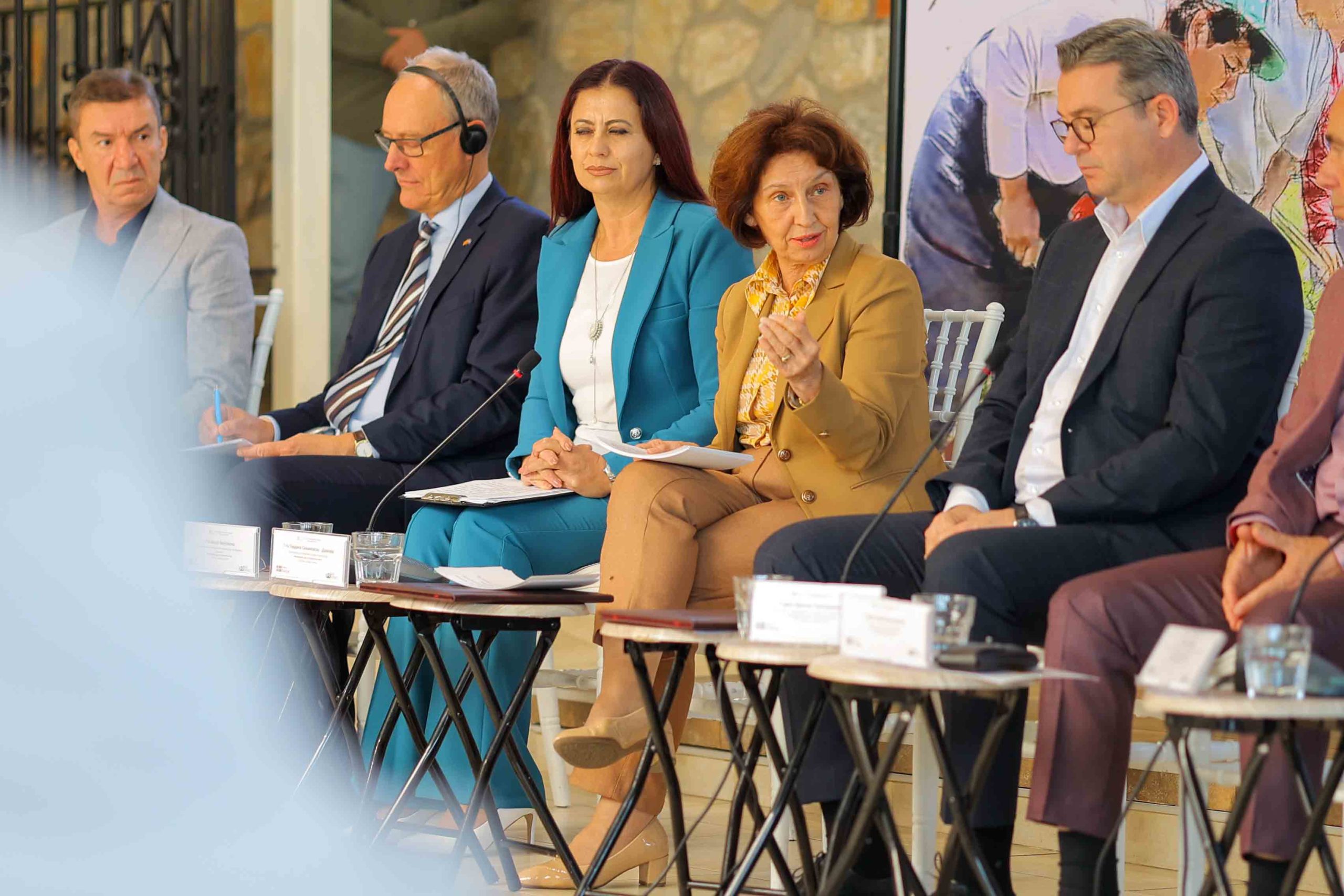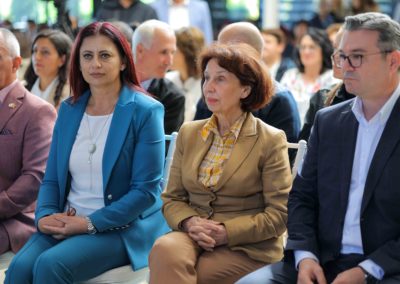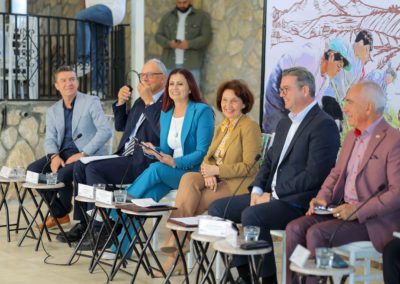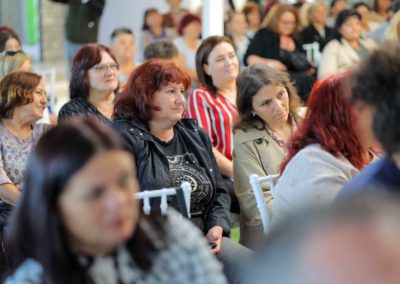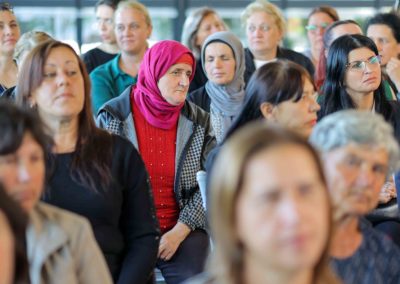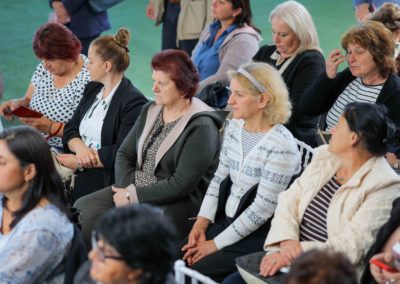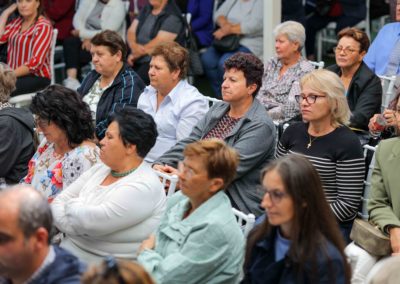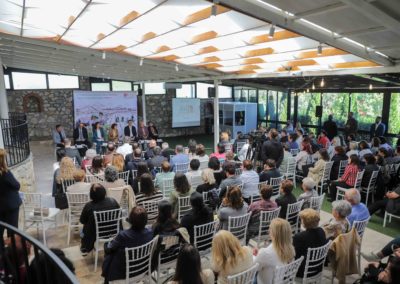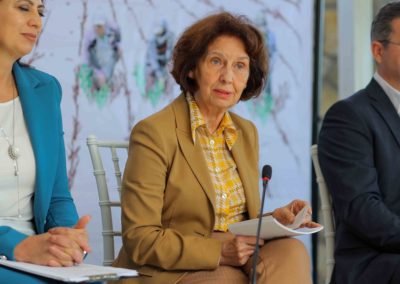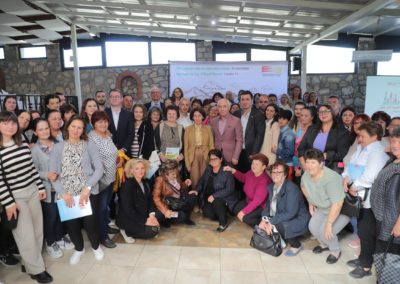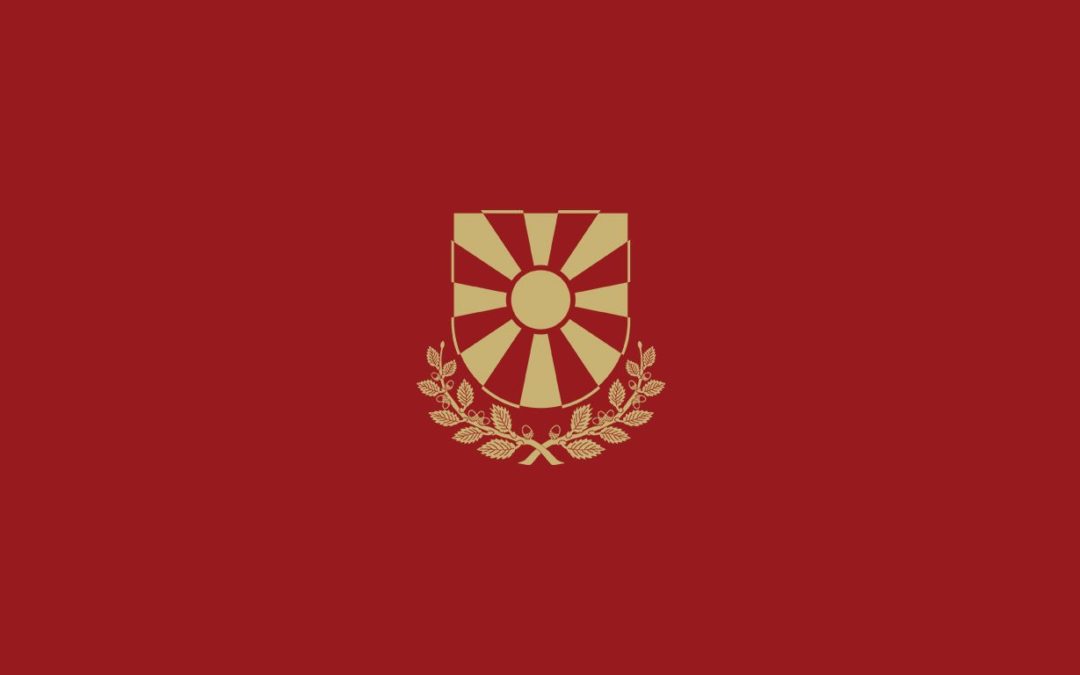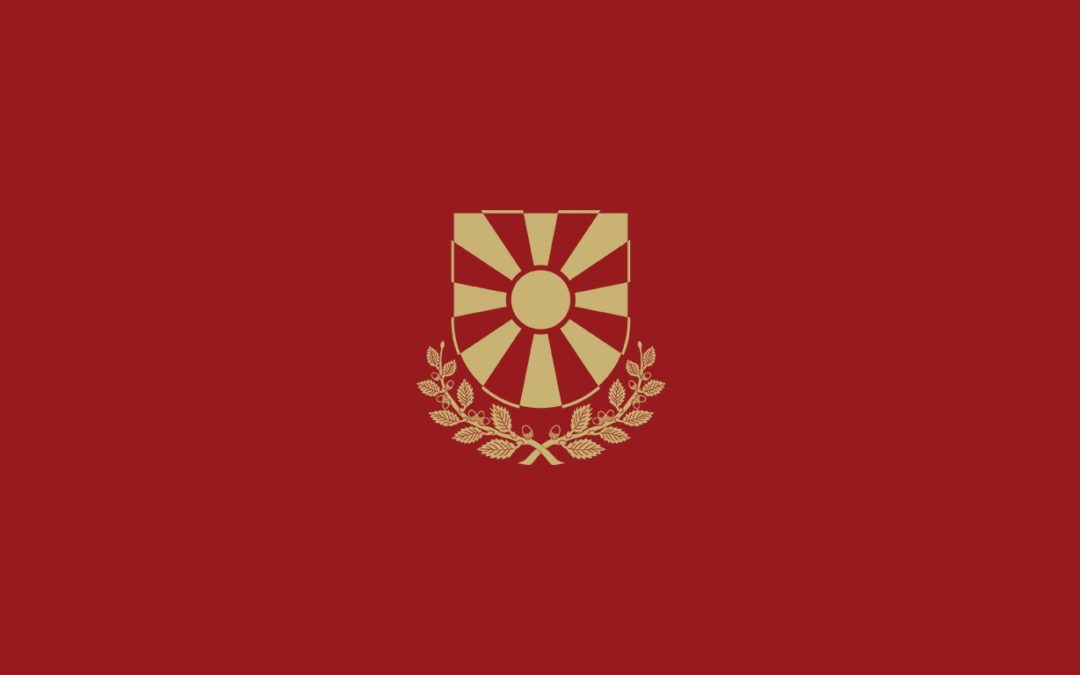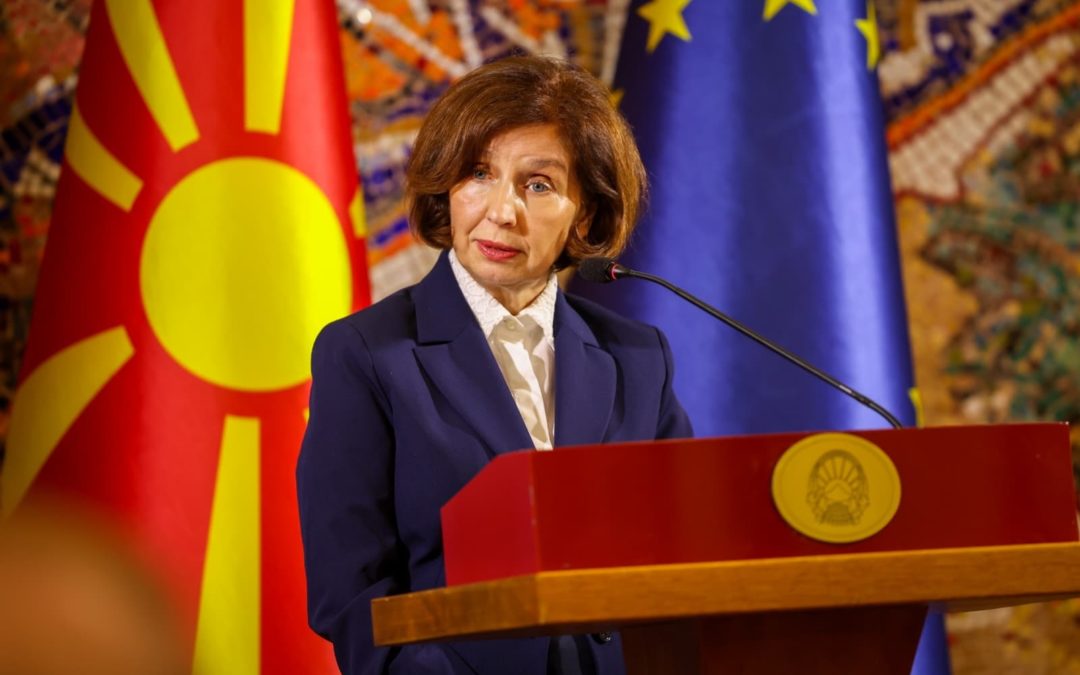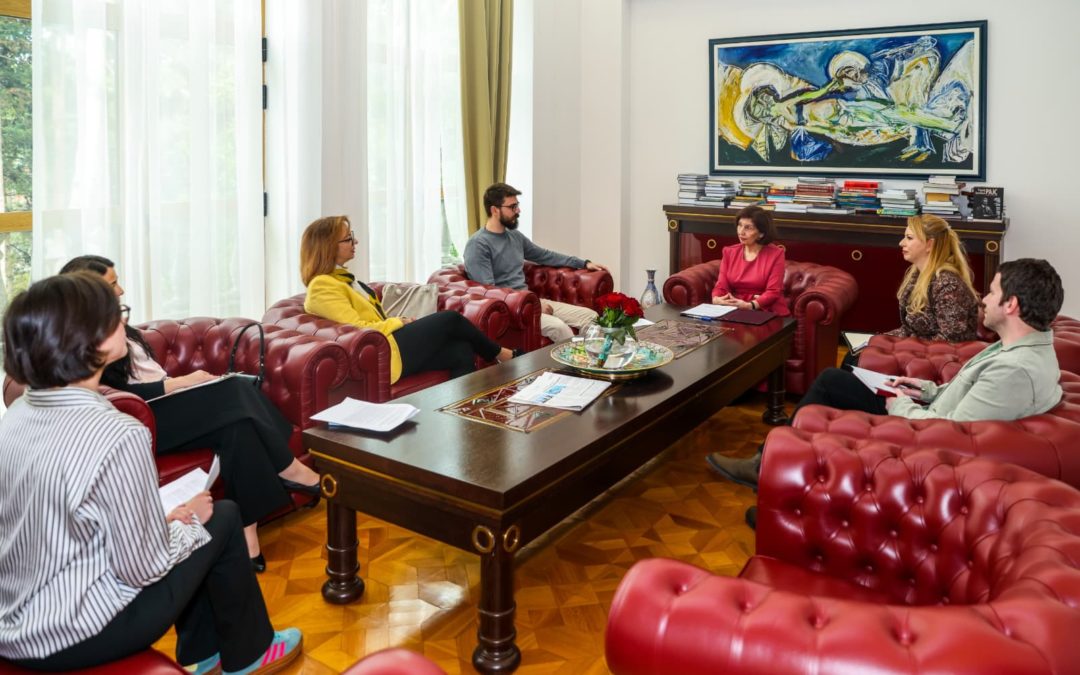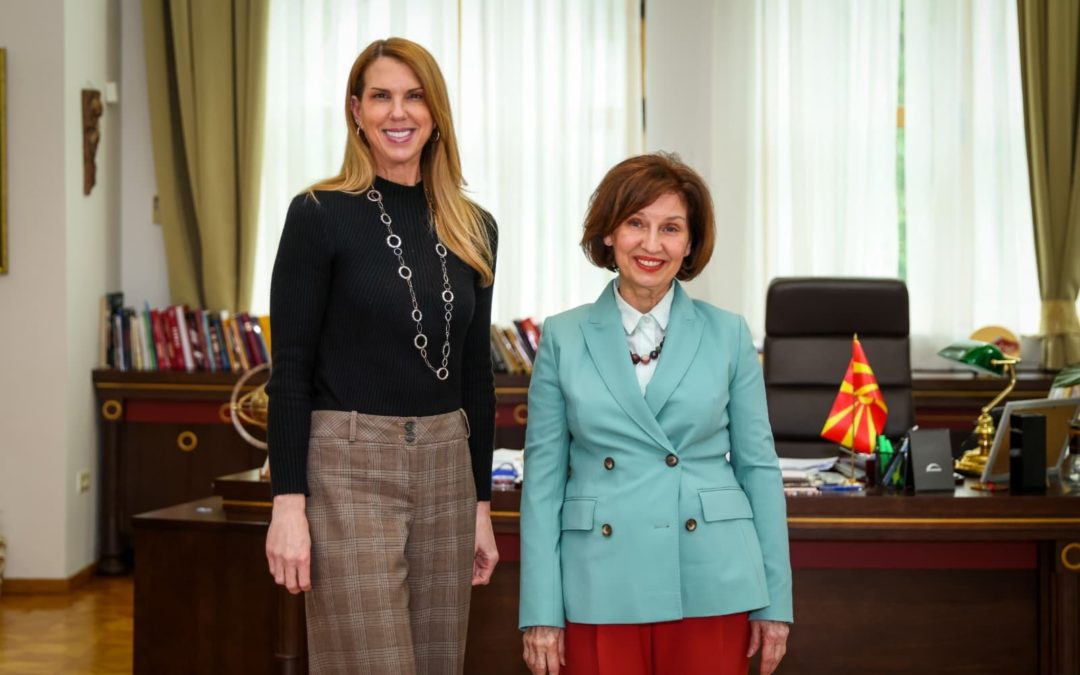President Gordana Siljanovska Davkova, on the occasion of the International Day of Rural Women, addressed the forum on “Gender equality of rural women: Improving the economic status”, organized by the National Federation of Farmers and held today in the village of Dihovo, Bitola.
In her address, the President, thanking women from rural areas, said that their role is not only to contribute to agriculture, as one of the most important economic branches, but much broader. “I am proud of the people who live in rural areas. Macedonia was a rural country. Food was and will remain a strategic goal, in addition to energy”, the President said.
Pointing out that they put in enormous work, with no or minimal compensation, the President stressed the numerous problems and challenges women face: systemic discrimination, lack of investments and donations in agriculture, unpaid domestic work and reduced daily, weekly and annual leave, health insurance leave during pregnancy, lack of social care due to lack of coverage by childcare facilities, incomplete and inadequate health care, lack of domiciles for the elderly, lack of property, poor infrastructure, lack of regular transportation, lack of information, as well as inadequate and unfair earnings.
She said that we must not allow rural women to be artificially handicapped and frustrated and that amendments to the Law on Labor Relations and the Law on Health Insurance are needed. In that direction, she said that economic and social policies must take into account the needs of the most vulnerable categories.
Emphasizing that women from poor countries are the most affected, she said that it is essential to support and encourage female entrepreneurship, mentoring and leadership, adding that successful women, both in politics and economy, as well as in rural areas should be an inspiration.
“We must not neglect the work, the skills, the daily commitment of those who contribute not only to the well-being of the family, but also to the community and society. They rightly say that the life of women leaders from rural areas is a 24-hour engagement, a battle with the land, love with the land, with food production and a daily battle and coexistence with nature. For me, rural women are absolute leaders, heroines that we should admire, but it is not enough to just admire, we should support and help them, individually, institutionally and in every way. Supporting rural women is supporting the Macedonian village, supporting stopping the process of emigration, supporting agriculture, supporting the Macedonian economy, but also supporting the Macedonian future”, President Siljanovska Davkova said in her address.
She pointed out that in addition to the current security and economic crises, climate change can have a huge impact on rural areas, i.e. on food production, which will further threaten the fragile economic and existential position of rural women. For those reasons, the President added, in addition to the global response, we must act locally. “If we are threatened with drought, we should think about saving water resources, invest in dams and reservoirs, implement modern irrigation systems, use cost-effective technologies. We need to adapt to the situation, so that we do not face disasters”, the President said in her address.
She expressed satisfaction with the election of our country as a member of the Human Rights Council, adding that women’s rights are human rights, the rights of rural women are human rights, and that we can address them not only locally, nationally, regionally and at the European level, but also at the level of the United Nations.
The purpose of the Forum is to highlight the importance of the role of women from rural areas for agricultural and rural development of our country and the possibilities for their economic empowerment.
The Minister of Agriculture, Forestry and Water Management, Cvetan Tripunovski, the Mayor of the Municipality of Bitola, Toni Konjanovski, the President of the National Federation of Farmers, Vaska Mojsovska, the Head of Development Cooperation at the Swedish Embassy, Mikael Atterhog, the Regional Director for Europe in the Swedish “We Effect” development organization, Saso Angelovski and the Project Manager: Support for diversification of economic activities in the rural areas of South-Eastern Europe, Karin Rau, addressed the event, too.

